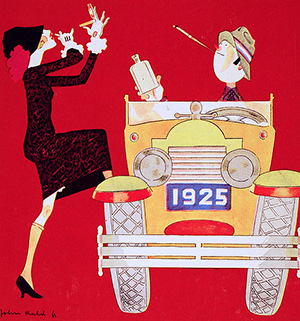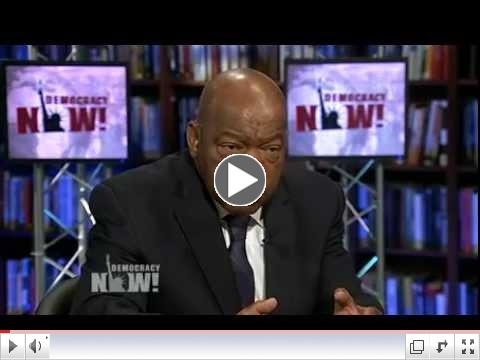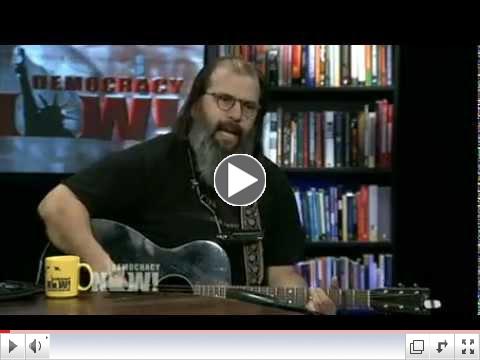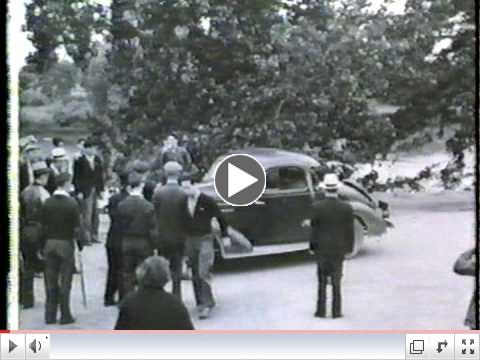Visit Our New 'Online University of the Left' and Be Amazed!

Check out the various departments, study guides and archives
|
Dialogue & Initiative 2012 The new annual edition of our journal of discussion and analysis is now out. More than 130 pages, it includes 13 articles related to the Occupy! movement, as well as seven others vital to study in this election year. Cost is $10 plus shipping. Or get one by becoming a new member or sustainer. Click the title to buy it directly.
|
Blog of the Week:
Sign petition on the Committee to Stop FBI Repression site
|
Lost Writings of SDS..
Revolutionary Youth the the New Working Class: The Praxis Papers, the Port Authority Statement, the RYM Documents and other Lost Writings of SDS
Edited by Carl Davidson 
Changemaker, 273pp, $22.50
For the full contents, click the link and view 'Preview' under the cover graphic.
|
|
By Randy Shannon, CCDS

"Everyone has the right to work, to free of employment, to just and favorable conditions of work and to protection against unemployment."
- United Nations Universal Declaration of Human Rights, December 10, 1948
I. Introduction
The "Great Recession" that began in 2007 has caused the greatest percent of job losses since the Great Depression of 1929. This crisis is the end of an era of unrestrained 'neo-liberal' capitalism that became public policy during the Reagan administration. The crisis marks a new level of instability with the growth of a global financial elite that targeted US workers and our trade unions after World War II.
|
|
Order Our
Full Employment Booklets
 |
...In a new and updated 2nd Edition
Capitalism may well collapse under its own excesses, but what would one propose to replace it? Margaret Thatcher's mantra was TINA...There Is No Alternative. David Schweickart's vision of "Economic Democracy" proposes a serious alternative. Even more fundamentally, it opens the door to thinking about alternatives. His may or may not turn out to be the definitive "successor system," but he is a leader in breaking out of the box. |
|
Quick Links...
CCDS Discussion |
Sex and the Automobile in the Jazz Age

By Peter Ling in History Today: 'Brothels on wheels' thundered the moralists but Peter Ling argues the advent of mass motoring in the 1920s was only one of the changes in social and group relationships that made easier the pursuit of carnal desire.
|
 A Memoir of the 1960s by Paul KrehbielAutumn Leaf Press, $25.64 A Memoir of the 1960s by Paul KrehbielAutumn Leaf Press, $25.64 | | Shades of Justice Video: Bringing Down a President, Ending a War |
|
Carl Davidson's Latest Book:
New Paths to Socialism

Essays on Mondragon, Marx, Gramsci and the Green and Solidarity Economies |
Solidarity Economy:What It's All About

Edited by Jenna Allard, Carl Davidson and Julie Matthaei
Buy it here...
|

Voices from the Underground Press of the 1960s, Part 2- Foreword by Susan Brownmiller
- Preface by Ken Wachsberger
$37.50 + $6 shipping
|
|
|
|
An Invitation to CCDSers and Friends...
 'Inside/Outside' and the Streets: Debating 2012
We're the Committees of Correspondence for Democracy and Socialism...Do you have friends who should see this? Pass it on...Do you have a blog of your own? Others you love to read every day? Well, this is a place where you can share access to them with the rest of your comrades. Just pick your greatest hits for the week and send them to us at carld717@gmail.com!
Most of all, it's urgent that you oppose austerity, make solidarity with the Occupy! movement and end the wars! We're doing more than ever, and have big plans. So pay your dues, make a donation and become a sustainer. Do it Now! Check the link at the bottom...
|
Not Again! How Our Voting System Is
Ripe For Theft and Meltdown in 2012

By Steven Rosenfeld
AlterNet
July 13, 2012 - Voting in America is ripe for a major meltdown in 2012.
The most fundamental of democratic processes has become more barrier-filled and error-prone than at anytime since Florida's 2000 election, when voter list purges, flawed voting technology and a partisan U.S. Supreme Court majority ended a statewide recount and installed George W. Bush as president.
This fall's potential problems begin with a new generation of voter suppression laws and aging voting machines in a handful of presidential battleground states. And other important factors are in play, such as election officials curtailing voting options due to fiscal constraints, the increasing age of poll workers-volunteers averaging in their 70s-who must referee an ever more complex process, and the likelihood that close races will end up in post-Election Day legal fights.
Voters tell academics they want consistency in voting. Yet emerging trends are poised to upend that hope in many states. This year's big questions are: where will the meltdown-or meltdowns-occur, what will go wrong, on what scale, and, when it comes to computer failures or tampering, will we even know about it?
"The arc of American history has always moved toward expanding the electorate," Attorney General Eric Holder told the NAACP Tuesday, saying the Justice Department was pushing back on new voter suppression laws, calling voter ID rules the modern version of segregationist poll taxes. "We will simply not allow this era to be the beginning of the reversal of that historic progress."...(Click title for more)
|
|
Electoral Politics and the Left:
A Debate on 'The Rag Blog'

David Hamilton argues that the U.S. federal elections in 2012 don't merit being the focus of our attention, while Jay Jurie contends that they still offer worthwhile opportunities for progressives and that the electoral arena should not be abandoned to the Right. Be sure to read and add to the comments!
By David P. Hamilton and Jay D. Jurie
The Rag Blog, July 10, 2012
The following exchange between David Hamilton and Jay Jurie began on The Rag Blog's email discussion group, a lively forum in which Rag Blog contributors and followers debate issues of the day with, shall we say, great vigor!
Being a presidential election year, the left in the U.S. is locked into its recurring debate on how to relate to the federal elections. There are always those who decide that the Democratic Party candidate is good enough or the Republican candidate is bad enough that it is essential to support the former -- with one's vote, if not with one's enthusiasm.
Then there are always those who declare that the Democratic Party candidate is essentially subservient to the same corporate interests as the Republican and that we shouldn't be associated with either. When this position involves a third party candidate such as Ralph Nader, the discussion can become bitter.
Here David Hamilton argues that the U.S. federal elections in 2012 don't merit being the focus of our attention, while Jay Jurie contends that they still offer worthwhile opportunities for progressives and that the electoral arena should not be abandoned to the Right.
David P. Hamilton:
The corruption of U.S. electoral politics.
U.S. federal elections are corrupted by capitalist class money to the point that further participation by the Left primarily lends credence to a charade hiding the continuing evisceration of American democracy.
In 93% of races for the House of Representatives and 94% of races for the Senate, the candidate with the most money wins. In 98% of the races where the incumbent has the most money, the incumbent wins. The obvious strategy for a candidate is to have the most money; to have your own and/or cater to moneyed interests. For the moneyed interests, the obvious strategy is the way Reagan defeated the Soviet Union in the arms race, by making continued participation financially crippling if not impossible.
Presidential election spending is increasing geometrically.
Total spending on U.S. presidential elections:
1992 - $ 192.2 million.
1996 - $ 239.9 million, up 25%.
2000 - $ 343.1 million, up 43%.
2004 - $ 717.9 million, up 109%
2008 - $ 1,324.7 million, up 85%
2012 - Estimates of total expenditures by all candidates in federal elections go over $5 billion. A conservative estimate is for a 100% increase in expenditures of all candidates in the presidential race over 2008, reaching a total of roughly 13 times more than 20 years ago. It is logical to expect this process of expenditure growth to accelerate markedly in the wake of the "Citizens United" decision.
In 2008, small contributions ($200 or less) provided 9% of the funding for House Democrats and 14% for House Republicans. Those percentages are historically declining. The rest comes from the 1% in the form of large contributions, PAC money and self-financing.
Gov. Scott Walker of Wisconsin won his recall election 53 to 47 while spending a record amount of money (over $50 million), outspending his opponent over 7 to 1 and receiving over two-thirds of his money from big out-of-state capitalist donors, specifically the Koch brothers.
In a capitalist hegemony such as in the U.S., all things of social value become commodified, especially political power. The strategy of the capitalist class, that richest less than 1% who own and control the major corporations, is to own the federal government by commodifying elections, largely because the federal government funnels hundreds of billions to them annually and protects their economic privileges....(Click title for more)
|
Democracy Now! Interviews Rep. John Lewis on the Fight to Win--and Now to Defend--Voting Rights
 | | John Lewis on Struggle to Protect, Voting Rights in U.S. |
AMY GOODMAN: We spend today's hour looking at the bloody struggle to obtain-and protect-voting rights in this country. Since 2010, at least 10 states have passed laws that require people to show a government-issued photo ID when they go to the polls. While supporters say the laws protect against voter fraud, others argue they're more likely to suppress voter turnout among people of color, the poor and the elderly, who may lack the proper ID and find it harder to obtain one. In total, 16 states have passed restrictive voting laws that could shape the 2012 election, including the vital swing states of Florida and Pennsylvania.
Well, on Monday, NAACP president and CEO Ben Jealous made voting rights the center of his address to the group's annual convention in Houston.
BENJAMIN JEALOUS: Right now, in this moment, with 120 days left until the election, we have a choice to make. We can allow this election, Jerry Mondesire, to be stolen in advance, as a politician from Pennsylvania recently bragged about when he thought no one was listening, talking about his state's voter ID law, or we can double down on democracy and overcome the rising tide of voter suppression with a higher tide of voter registration and mobilization and activation and protection.
AMY GOODMAN: Well, today we're joined by a leader of the civil rights movement who risked his life numerous times marching for the right of all Americans to vote: 13-term Democratic Congressmember John Lewis of Georgia. He was a leader of the civil rights movement who marched side by side with Dr. Martin Luther King. He served as chair of the Student Nonviolent Coordinating Committee, helped organize the Freedom Rides and spoke at the 1963 March on Washington. He has been arrested more than 40 times and has just written a new book called Across That Bridge: Life Lessons and a Vision for Change.
He visited us in our studio, and I asked Congressmember Lewis about the voter purge in Florida, where the Justice Department had sued to block Republican Governor Rick Scott's controversial effort to remove thousands of registered voters from the rolls, using an outdated drivers' license database to ostensibly identify non-citizens registered to vote.
REP. JOHN LEWIS: It is unreal, it is unbelievable, that at this time in our history, 47 years after the Voting Rights Act was passed and signed into law, that we're trying to go backward. I think there is a systematic, deliberate attempt on the part of so many of these states-not just Florida, but it's all across the country, it's not just Southern states-to keep people from participating. I think there is an attempt to steal this election before it even takes place, to make it hard, to make it difficult for our seniors, for our students, for minorities, for the disabled to participate in the democratic process. It's not right, it's not fair, and it's not just.
AMY GOODMAN: Why do these voter purges actually target the groups you've just talked about? How do they target them? Maybe you can explain what you were so pivotal in having passed, the Voting Rights Act of 1965?
REP. JOHN LEWIS: Well, I think there's this make-believe that if we do not purge, if we do not weed out some of these people, they're going to come out and vote, and they're going to vote not the way that some people would like for them to vote. They're primarily Democratic voters. It makes me want to just cry, after people gave a little blood, after some people were beaten, shot and murdered trying to help people become registered voters. I can never forget the three civil rights workers that were murdered in the state of Mississippi on the night of June 21st, 1964; other people shot down in cold blood; the march from Selma to Montgomery, where 17 of us were seriously injured. And we passed the Voting Rights Act. We renewed the act. We extended the act. And then the state of Florida, the state of Georgia, Alabama and other states throughout the nation come along with tactics to make it hard, to make it difficult for people to participate. We should be making it easy and simple and open up the political process and let all of the people come in.
AMY GOODMAN: Explain what the Voting Rights Act said....(Click title for more)
|
Believe It or Not Dept: The Death of
Critical Thinking in Texas Public Schools

By Danny Weil
TruthOut.org
July 13, 2012 - The Republican Party of Texas has issued their 2012 political platform and has come out and blatantly opposed critical thinking in public schools throughout the state.
If you wonder what took them so long to actually state that publicly, it is really a matter of timing. With irrationality now the norm and an election hovering over the 2012 horizon, the timing of the Republican GOP announcement against "critical thinking" instruction couldn't be better. It helps gin up their anti-intellectual base.
The Texas GOP's declarative position against critical thinking in public schools, or any schools, for that matter, is now an official part of their political platform. It is public record in the Republican Party of Texas 2012 platform. With regard to critical thinking, the Republican Party of Texas document states: "Knowledge-Based Education - We oppose the teaching of Higher Order Thinking Skills (HOTS) (values clarification), critical thinking skills and similar programs that are simply a relabeling of Outcome-Based Education (OBE) (mastery learning) which focus on behavior modification and have the purpose of challenging the student's fixed beliefs and undermining parental authority." (page 20, Republican Party of Texas, 2012).
Yes, challenging beliefs or claims is considered insubordinate, immoral and could lead to rebellion, disobedience or perhaps worse: revolution. For the Republican Party and their followers, thinking is subversive, imagination is a sin and the Republican Party in Texas and elsewhere is working to codify this into public policy. The plutocrats can't have a working-class citizenry that is asking questions of those in power, be they parents or bosses; instead, the people must be taught the ideology of what is morally acceptable, what rules and regulations to follow. and even more importantly, how to accept and internalize hierarchical authoritarianism. Critical thinking is a direct challenge to the "leaders" and their claims on authority, and any opposition to vertical arrangements is ethically unacceptable to those in power....(Click title for more)
|
Party-Building for the 21st Century:
From the Manifesto to the Black Panthers & Syriza

By Louis Proyect
Unrepentant Marxist via thenorthstar.info
June 14, 2012 - Revolutionary struggles in other countries often serve as useful lessons in strategy and tactics for us. While Greece is by no means at the point of a proletarian revolution, the success of SYRIZA naturally raises questions about its validity as a model for the American left.
In my view, there are two very important lessons we can draw as we work towards creating our own party that fights both in the streets and at the ballot box.
The first of these is the need to reconsider whether the "program" of a left party has to be defined on the basis of some kind of revolutionary "continuity" or "tradition" that establishes its pedigree going back to Vladimir Ilyich Lenin and Karl Marx before him. The basic confusion is over whether a group should be constituted on a program geared to the exigencies of the current class struggle or on a doctrine that defines the party on a series of historical controversies going back for over a century. When you form a party on the basis of doctrine, you are following the model of a religion that, for example, defines itself on a body of written work that upholds the correct stance on questions such as the status of the Virgin Mary or who was correct in the split between Rome and the Eastern Orthodoxy.
SYRIZA demonstrates that this is not a useful approach for creating parties with influence on a mass or meaningful scale.
The program of the Russian social democracy was totally unlike the doctrinal model small propaganda groups today use as some kind of litmus test, requiring agreement around a host of divisive international and historical questions such as when the U.S.S.R. stopped being "socialist." Instead, Lenin and his comrades only asked workers to support demands directly related to the class struggle under Tsarism as demonstrated by the draft program under evaluation in 1899:
An eight-hour working day.
Prohibition of night-work and prohibition of the employment of children under 14 years of age.
Uninterrupted rest periods, for every worker, of no less than 36 hours a week.
Recently, SYRIZA released a 40-point program that will strike the impartial observer as unlike any of the aspiring "vanguard" organizations that are so insistent upon the need for soviets, workers militias, and the like. To cite a few planks:
Use buildings of the government, banks and the Church for the homeless.
Open dining rooms in public schools to offer free breakfast and lunch to children.
Free health benefits to the unemployed, homeless and those with low salaries.
Subvention up to 30% of mortgage payments for poor families who cannot meet payments.
Building the party, one breakfast at a time.
As someone who lived through the stormy 1960s, I was intrigued to see what amounted to a reprise of one of the central activities of the Black Panther Party for Self-Defense (BPP): a free breakfast program. As "reformist" as this might sound, it was enough to convince the FBI to launch a terror campaign against the BPP. No doubt, the army and the big bourgeoisie whose interests it serves would have about the same reaction to such a program in Greece....(Click title for more)
|
A Traitor to Her Race, a Hero to Us All
 | | Anne Braden: Southern Patriot (1924-2006) -- 3 minute sample |
New Film: 'Ann Braden: Southern Patriot' By Anne Lewis & Mimi Pickering
Reviewed by Susan Smith Richardson
The Texas Observor
June 01, 2012 - Her white attackers called Anne Braden a race traitor. A middle-class white woman from Alabama, Braden rejected her racial privilege in the Jim Crow South and devoted her life to fighting racism. Social justice historians and longtime Southern organizers know about Braden, an icon within the civil rights movement and a self-described socialist who fought on when legal segregation ended, plowing the fields at the intersection of racial and economic oppression.
But few Americans know her name, though she chronicled and was close to some of the most important figures in the civil rights movement-from the Rev. Martin Luther King Jr. to Ella Baker to the Rev. Fred Shuttlesworth-and was instrumental in social justice movements until her death in 2006.

Anne with Cornel West
In Anne Braden: Southern Patriot, documentary filmmakers Anne Lewis and Mimi Pickering give Braden the recognition she deserves, and by extension, an overlooked chapter in the nation's progressive political history. "I think the reason she becomes less well known is that her ideas are radical, and I don't know how much people want to read the ideas of a radical woman," said Lewis, who met Braden in the 1980s when the veteran activist was running Jesse Jackson's presidential campaign in Kentucky.
The documentary is a departure from the celebratory images of how far we've come in addressing Myrdal's "American Dilemma." Yet it shows that after the mass movements for social change ebbed in the '70s, organizers continued out of the spotlight to attempt to create a just society-whether in the strip mines of Kentucky or the textile mills of North Carolina. These are the little-told stories.
"I think it's an important film for us now," said Lewis. "It's not a little old lady talking about the glories of the civil-rights movement. ... It's going to make people feel uncomfortable."...(Click title for more)
|
On Woody Guthrie's Centennial, Celebrating the Life, Politics & Music of the 'Dust Bowl Troubadour'
 | | Woody Guthrie Centennial: Celebrating Life, Politics and Music of the "Dust Bowl Troubadour" |
Today a Democracy Now! presents a special on the life, politics and music of Woody Guthrie, the "Dust Bowl Troubadour."
Born a hundred years ago on July 14, 1912, in Oklahoma, Guthrie wrote hundreds of folk songs and became a major influence on countless musicians, including Bob Dylan, Bruce Springsteen, Pete Seeger and Phil Ochs. While Guthrie is best remembered as a musician, he also had a deeply political side, speaking out for labor and civil rights at the height of McCarthyism.
 | | Woody Guthrie "Vigilante Man" |
Amidst commemorations across the country marking Woody Guthrie's centennial, we're joined by Guthrie's daughter, Nora Guthrie, author of the book "My Name Is New York: Ramblin' Around Woody Guthrie's Town"; his granddaughter Anna Canoni; and musician Steve Earle. We hear stories from Woody Guthrie's family life and his time in New York City, where he lived from 1940 until his death in 1967 after a long battle with Huntington's disease. Guthrie's wife Marjorie later dedicated her life to finding a cure for the disease, inspiring young doctors to pursue genetic research and founding what became the Huntington's Disease Society of America.
Earle, a three-time Grammy winner, performs two of Guthrie's songs and discusses how the singer inspired him as a musician and activist. "I never separated music and politics, which kept bringing me back to Woody, over and over and over again," Earle says. "I still don't consider myself to be a political artist; I'm just an artist that - I think like Woody was - that lives in really politically charged times." [includes rush transcript]...(Click title for more)
|
|
Become a CCDS member today!
 The
time is long past for 'Lone Rangers'. Being a socialist by your self is
no fun and doesn't help much. Join CCDS today--$36 regular, $48
household and $18 youth. The
time is long past for 'Lone Rangers'. Being a socialist by your self is
no fun and doesn't help much. Join CCDS today--$36 regular, $48
household and $18 youth.
Better yet, beome a sustainer at $20 per month,
and we'll send you a copy of Jack O'Dell's new book, 'Climbing Jacobs
Ladder,' drawing on the lessons of the movement in the South in the
1950s and 1960s.
Solidarity, Carl Davidson, CCDS |
|
|